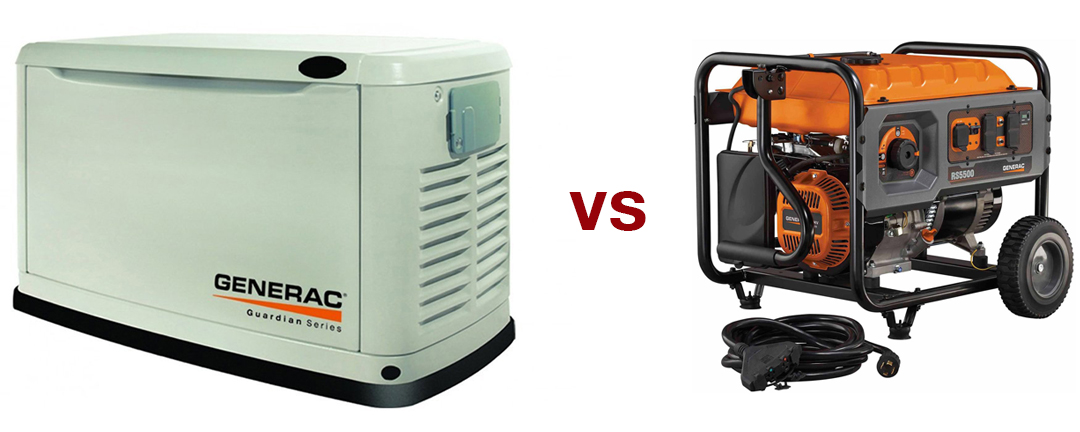True Costs of Portable Generators

People commonly purchase portable generators to power their homes in case they lose power. For short outages, this option may be okay. But powering homes isn’t what portable generators do best. And for longer outages, portable generators become as much as a hassle as they are a convenience.
The Extra Costs of Portable Generators
People usually buy portable generators because these generators cost less than standby generators. However, during a power outage, portable models can actually cost more to operate than standby ones.
Portable generators run on gasoline, which is more expensive than the fuels standby generators use (diesel, natural gas, and propane). So if you have to run your generator 24 hours or more and you go through 20 or more gallons of fuel, the expense adds up. Add to that the fact that diesel, natural gas, and propane are also more energy efficient than gasoline.
You’ll also have to change the oil in your standby generator frequently. Some models require you to change the oil every 50 hours of operation. That means that every two days the power is out, you’ll have to purchase, drain, and refill the oil on these units.
And don’t forget the extra runs to the gas station. You likely don’t have a gas tank larger than five gallons, which means you’ll frequently have to make the trip to fill it up.
Inconveniences of Portable Generators
Speaking of filling up, the gas tanks on portable generators are smaller than those in standby generators. That means they’ll need refueling more often. This can pose a problem if you cannot return home from work. And it will be an inconvenience when you have to get up in the middle of the night or go outside in poor weather conditions.
Also, because of their power output, portable generators won’t provide adequate power for your home. They may run the bare necessities — the sump pump, the refrigerator, the furnace — but not much else. Likely you’ll have to rely on alternative power methods if you need anything extra (like the microwave).
Portable Generators Don’t Provide Peace of Mind
Although portable generators have wheels, they’re still cumbersome. And they aren’t always easy to move, especially if you have to roll them off the pavement and into your yard. This can pose a problem if you or a loved one has to set it up but finds the task difficult or simply impossible.
There’s also the issue of availability. Portable generators do not turn on automatically. So if you’re at work or away from the house, you house will go without power until you can return to set up the generator.
Also, you should consider whether you can risk delaying power at your home. Medical conditions, flood systems (e.g. sump pumps), outdoor temperatures, and home office equipment are all factors you’ll have to keep in mind before deciding whether a portable generator will meet your needs.
Standby Generators Provide Permanent Solution
A long-term solution to losing electrical power is to install a standby generator. Although they cost more upfront than standby models, they resolve all the difficulties with the smaller generators. Standby generators start automatically, can power your entire home, run on less expensive fuel (including natural gas and propane), and require less maintenance during a power outage.
When costs are considered long-term, standby generators make sense, too. According to Remodeling magazine, homeowners recoup 68 percent of the cost of a standby generator when they sell their house. And if your area experiences a severe power outage, remaining at home as opposed to a stay at a hotel can save you thousands of dollars in expenses for food and shelter.
If you’re looking for a permanent solution that will provide the electricity you need and convenience you want during a larger power outage, a standby generator is the best option.

lrha4i
m9fjwf
mqh9cj
gmw7se
htyy2t
o942q3
AYRHaIQC